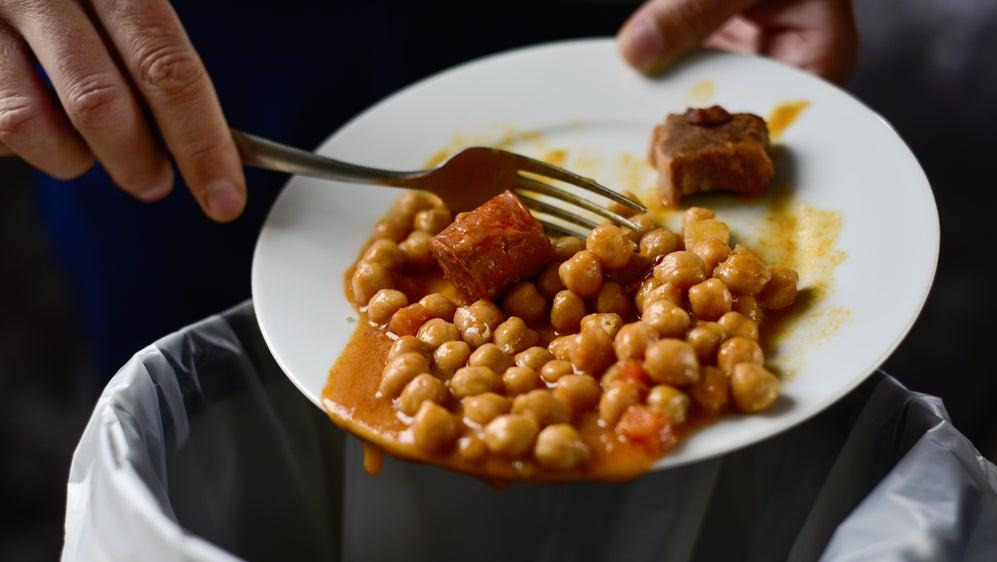These Are The Groceries You're Most Likely To Waste
Some common items often get thrown in the trash before consumers can put them to use.
It's infamous: That bag of greens you always tell yourself you'll use "tomorrow" as it slowly turns to mush in your refrigerator. We all shop for groceries with the best of intentions, but planning out one's weekly inventory can be difficult, and something almost always winds up in the trash before it can get used. Some new consumer data has found that people in the U.S. spend almost $3,000 a year on unused groceries—and certain items get thrown out more often than others.
Americans throw out their leftovers
The report, conducted by OnePoll on behalf of meal kit service Hello Fresh, surveyed 2,000 Americans about their food waste and how they consume leftovers. On average, respondents said they spend anywhere from around $250 to $500 on weekly groceries but that $63 worth usually ends up getting thrown out. You might think people are just being extra wasteful by not storing leftovers and eating them later on, but even that method doesn't always pan out.
Close to one-third of survey respondents said they forget about leftovers once they're out of sight, while 24% said they just get tired of eating the same thing multiple days in a row—this probably explains why 23% said leftovers are not popular in their household.
Setting leftovers aside, grocery shopping is a minefield, too. Per the study, 38% of people have thrown food out just because they don't feel like eating it after they bought it. Plus, some foods come in portion sizes that are just too much to get through before they expire.
The most wasted groceries in America
Per the survey, these are the top 10 hardest foods to use up:
- Lettuce — 27%
- Bananas — 23%
- Milk — 21%
- Apples — 21%
- Bread — 21%
- Avocado — 17%
- Deli items (meat, cheese, prepared foods, etc.) — 16%
- Eggs — 16%
- Meat — 15%
- Carrots — 14%
Unsurprisingly, that bag of lettuce remains in the top spot. Sure, you could learn some helpful tips and tricks for storing produce in ways that extend its shelf life, but to motivate yourself to actually use it all up, you need some great recipes. We can help with that.
I'll be the first to admit that when my bananas start to brown, I'm less and less likely to reach for one (unless I toss it in a smoothie). Here's one way to prevent bananas from going ripe too fast.
To combat personal food waste, 37% of respondents said they'd try meal planning (remember, it's a survey commissioned by Hello Fresh) and 17% said they'd try composting. Both options sound like a big commitment, but it's mostly a matter of getting into new habits. Even small efforts to cut back on waste are better than none at all.
